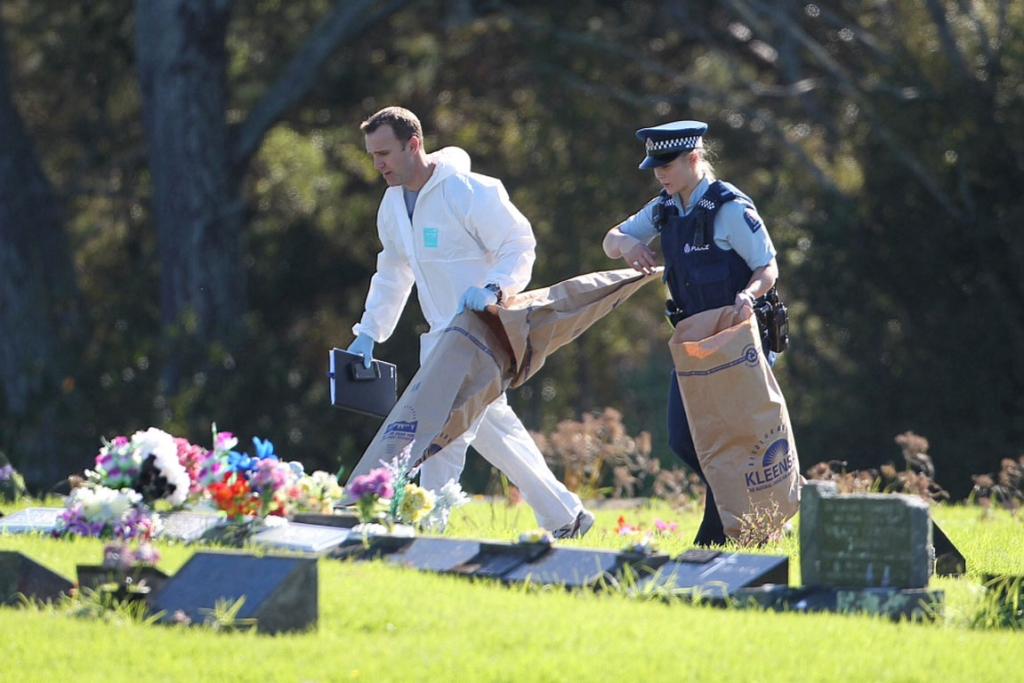The Filipino community of New Zealand received a shock last week. One of our own, a mother of three in Blesilda Gotingco went missing and was later found murdered in a cemetery not far from where her belongings were found.
The shock did not limit to Filipinos only, but to New Zealanders of all backgrounds as well. Blesilda, or Blessie as she was fondly known, was the subject of a massive manhunt when she failed to return home from work one evening. Then, the emotions poured in when the body of a woman was found in a cemetery in the North Shore.
Many were asking what would drive anyone to commit such a heinous crime. Taking the life of someone is not the only loss, but Blessie’s death also robbed three people of their mother and a man of his wife. The killer is apparently not connected to the family in any way, and his motive is unknown.
But the biggest question on our minds is this: what happened to our society?
Of course any murder would be breaking news, but in a country ranked among the safest in the world an occurrence of this kind is very rare – to say the least.
Discussions on social media were rife. Many New Zealanders mentioned that there used to be a time when they could sleep at night without locking their doors, and elderly folks reminisced their childhood when they played even when it was dark and still went home safe.
Millenials and the younger generation may think of that scenario as implausible or exaggerated, but statistics do show that those claims are not farfetched.
A report in 2010 by Statistics NZ shows that the rate of violent crimes is the higher than any previous year. The region with the highest rate was Counties-Manukau, right here in Auckland.
Also shown in the report is that cases of grievous assaults are rising. Reported cases of crimes classified as ‘serious assault’ was at 15,000 in 1994, in 2010 it was more than 20,000.
Addressing crime is an enigma. No single solution has shown a consistent result in all places that employ it. The belief used to be that stricter punishments would deter would-be criminals, but America is among the last few nations that still imposes death penalties yet they also have among the highest crime rates in the world.
There are also options such as arming civilians or adopting a police state, but are these drastic measures really what’s left for us to choose from?
Let’s look at the facts. Blessie’s murderer was known to authorities beforehand, the perpetrator was on police supervision for an earlier crime which included sexual assault and serious bodily harm. This was the reason why the police were able to apprehend him within hours of finding Blessie’s body.
Those previous criminal records are serious, yet the suspect was allowed to live among civilians. Reports also show that the suspect served a mere eight years for those crimes.
The police could justify allowing Blessie’s killer to reside in the outside world and say that he was under supervision. But that supervision must not have been very thorough as he was able to evade and commit another serious offence.

Mrs. Gotingco’s murder brought back shocking memories of the Kylie Jones Murder Case in the year 2000. Jones was only 23 years old when she was nabbed by her assailant after departing her bus in Glen Innes. The suspect was Taffy Hotene, who coincidentally was also on parole and under police surveillance, having been released from prison just two months prior.
Just earlier this year, in March, another young Christchurch woman was murdered also by a parolee. Amy Farrall was raped and murdered by her flatmate, Aaron Rhys McDonald who was out of prison on parole for arson and burglary. He was also placed under police surveillance.

Now the practice of home detention under police surveillance is under scrutiny again as it had allowed a criminal already convicted of serious charges to harm the innocent. A concerned New Zealand citizen called Mrs. Gotingco’s murder “preventable”, and it is hard to argue with that comment.
Allowing individuals who have shown that they are capable of inflicting harm on other people to live a normal life already looks like a bad idea on paper. These three murders mentioned proves that indeed it is. Perhaps it is time to reconsider the use of this practice?
Of course everyone deserves a second chance, but New Zealanders also deserve to live in safe environments. Probably a perfect compromise would be to look at imposing longer prison sentences as well as conducting thorough assessments of parolees if they are fit to live with the rest of the country or if there is a high chance they could be repeat-offenders.
Incidences of serious crimes is rising in once-safe New Zealand and this is a problem that demands a solution. There is an election coming up later this year, perhaps any party looking to win votes should run on a platform of bringing the country back to the times when children could be outdoors and still be safe and women can get off a bus without being slaughtered.
May Blesilda Gotingco rest in peace, may her family find their peace as well someday and may this brutal moment in New Zealand’s history be an eye-opener for the government.

